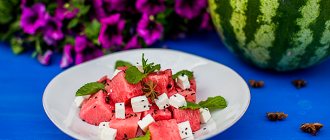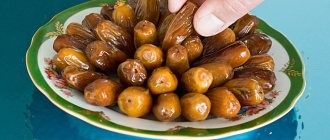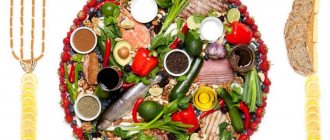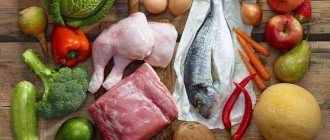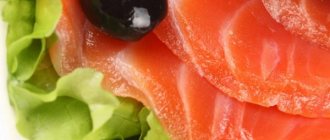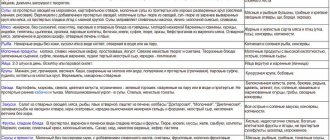Doctors are paying attention to the increase in intestinal disorders, according to statistics. They have become more frequent both among children and among adults. Increasing life expectancy has exacerbated the problem of atony in old age, and the “rejuvenation” of peptic ulcers, gastritis, and cholecystitis causes early concomitant damage in adolescents.
Finding out the reasons shows how important nutrition is to gut health. The intake of energy substrates, vitamins, and the level of immunity into the body depends on the proper functioning of the intestines. Failure leads to diseases of the gastrointestinal tract, liver, and biliary system. To restore functions and treat, it is necessary to introduce foods that are healthy for the intestines into the diet.
What should be the diet for gastrointestinal diseases?
The diet for intestinal diseases should not be meager; on the contrary, it will be necessary to include sufficiently high-calorie foods in the diet. If a person’s food absorption process is disrupted, then he usually begins to quickly lose weight, not only fat, but also muscle tissue “melts”. This process must be balanced by increasing the amount of complete protein entering the body (at least 130-140 g).
It is recommended to switch to fractional meals
and eat small meals 5-6 times a day to reduce stress on the intestines. Food will enter the body more evenly, and the body will be able to absorb more nutrients.
General rules
The intestinal tract is the most important component of the digestive system. It is in the intestines that the main processes of food digestion/absorption of nutrients into the blood and removal of toxins . The intestine is represented by two main sections: the small intestine, including the duodenum, jejunum, and ileum, and the large intestine, represented by the cecum, colon and rectum. The small intestine begins at the pylorus of the stomach and ends at the ileocecal valve , connecting the small and large intestines, which ends at the anus. The movement of food occurs due to peristaltic contractions. The main functions of the intestine are:
- secretion of digestive enzymes , hormones , mucus (duodenum);
- the process of cavity membrane breakdown of BZHU (throughout the entire small intestine);
- adsorption of amino acids , glucose, electrolytes, vitamins , liquids from processed food (small/large intestine);
- formation of feces, with active absorption of water (large intestine);
- endocrine function - synthesis of hormones: peptide , secretin , neurotensin ;
- synthesis of vitamins B12 and K .
- participation in the formation of immunity a - the intestinal immune system is represented by: lymph nodes, Peyer's patches, appendix.
Diseases of the small/large intestine are among the common diseases of the gastrointestinal tract. Conventionally, they can be divided into: inflammatory diseases ( enteritis , colitis , enterocolitis , Crohn's disease ), functional (intestinal dyspepsia , irritable bowel syndrome, dyskinesias ) and intestinal tumors (the vast majority are malignant). In the occurrence/development of intestinal diseases, the leading role is played by heredity, diseases of the upper gastrointestinal tract ( gastritis , peptic ulcer , pancreatitis ), intestinal infections, dietary errors, taking certain medications, excess body weight, stress, hypovitaminosis , lack of microelements, bad habits, physical inactivity .
Common symptoms of intestinal diseases include: abdominal pain, constipation / diarrhea , bloating, flatulence , nausea, blood/mucus in the stool, less often - increased body temperature, signs of intoxication, weight loss.
Diet therapy is the most important method of treating intestinal diseases, since proper nutrition ensures sparing of the intestines, allows you to relieve inflammation and normalize function in the shortest possible time. Despite the large list of intestinal diseases that can occur in acute/chronic form and manifest themselves in various symptoms, a therapeutic diet for the intestines is based on therapeutic Tables No. 3 and No. 4 ( 4A , 4B , 4B ), which are prescribed taking into account functional intestinal disorders, forms and stages of the disease.
Despite such diversity/differences in the range of products, they are all united by the most important principle of nutrition for intestinal diseases - maximum sparing from various negative impact factors, which is achieved by eliminating the negative mechanical/physical/chemical influence of food (optimal temperature of dishes, excluding a number of products, food consistency , methods of culinary processing of products), adherence to the regimen/principle of fractional meals, and thorough chewing.
A big problem for the majority of the population is neglect of preventive measures that avoid/reduce the risk of intestinal diseases. First of all, this is the lack of a nutritional system aimed at improving the health of the body in general and the intestines in particular. There are no uniform nutritional recommendations for all occasions, but it is important that your diet is focused on your health status, gender, age, and physical activity.
The basis of the diet is healthy food and a balanced diet. At the same time, it is extremely important to learn how to choose, combine foods and prepare healthy foods. An incorrectly selected nutritional system can have negative consequences for various organs and systems of the body. Thus, a high-protein diet is fraught with disruption of the intestinal microflora, the development of constipation and symptoms of endogenous intoxication.
To normalize and improve the functioning of the body, it is recommended to carry out regular intestinal cleansing, since it is in the intestines that waste products accumulate/stagnate, disrupting its normal functioning and affecting overall well-being/performance. The most common signs of intestinal “clogging” are: chronic fatigue, frequent headaches , gray/pale complexion, bad breath, feeling of heaviness in the stomach, insomnia /restless sleep, dry and flaky skin , rash. There are various methods of colon cleansing - mechanical: enema (in the absence of problems with the large intestine), colon therapy (after consulting a doctor, in a hospital setting) and a cleansing diet.
Mechanical procedures should be as gentle and safe as possible, but even in this case, it is not recommended to abuse cleansing enemas, since one may become accustomed to such stimulation, which can lead to problems with independent bowel movements, especially with frequent constipation . In addition, abuse of this procedure can lead to dysbiosis , vitamin deficiency and disruption of the digestive process. In this regard, the colon cleansing diet is a gentle method. Nutrition for bowel cleansing is based on the following principles and restrictions:
- Regular meals at a certain time and at least 4 times a day in small portions, which synchronizes the secretion of digestive juices and the motor activity of the gastrointestinal tract.
- Refusal to eat dry food, the volume of liquid should be at least 1.5 liters/day. Lack of fluid contributes to thickening of bile, development of constipation, and intestinal motility disorders.
- Exclusion from the diet of refractory animal fats (fatty red meat, fatty dairy products, confectionery creams, fast food products, impair the motor activity of the stomach, increase intestinal motility, promote weight gain, are potential carcinogens).
- Minimizing the consumption of smoked meats and products containing food additives (stabilizers, preservatives, dyes) that negatively affect the intestinal microflora and liver cells. It should be remembered that with excessive consumption of foods containing indigestible proteins (fatty lamb, pork, goose/duck) due to insufficient enzymatic decomposition of proteins/incomplete absorption, putrefactive dyspepsia , manifested by bloating/heaviness, abdominal pain, loose stools with discharge foul gases.
- Limiting the consumption of simple carbohydrates (sweets, baked goods, sugar), which cause putrefactive fermentation in the intestines as a result of not digesting a large amount of carbohydrates with the appearance of bloating/distension of the abdomen, rumbling, loose stools with foamy feces and the presence of gas bubbles on their surface/remnants of undigested food and copious release of gases. Do not overuse foods rich in essential oils (green/onions, radishes, garlic, radishes, rutabaga, mustard, horseradish) and spicy foods, as they strongly irritate the gastrointestinal mucosa.
- The diet for cleansing the intestines should contain, first of all, foods containing dietary fiber (vegetables/fruits, berries, bran, grains, leafy greens), which improve the chemical composition of bile, normalize intestinal motility, prevent constipation, stimulate the reproduction/growth of normal intestinal tract flora, remove toxins/radioactive compounds/carcinogens, normalize cholesterol metabolism. For this purpose, it is better to use so-called “brush salads” for the intestines - white cabbage, carrots, celery root, beets in various proportions in their raw form (finely chopped, without salt, seasoned with vegetable oil). Also, for this purpose, it is recommended to consume bran before meals (2 tablespoons with 200 ml of water), which, when combined with liquid, swell greatly and stimulate peristalsis. Also, in addition to raw/boiled vegetables, it is important to include whole grain products (porridge, sprouted wheat, whole grain bread, brown rice) and dried fruits (prunes, figs, dried apricots) in your diet. This diet is especially useful for “lazy bowels” (sluggish bowel syndrome), which occurs in people with poor diet/insufficient fluid intake due to physical inactivity and prolonged stress.
Mineral deficiency
In case of intestinal diseases, the body receives insufficient minerals, but this deficiency can be replenished with the help of dairy products
. Not only do they contain a lot of minerals, but they are also easily absorbed by the body. Dairy products can provide the body with a sufficient amount of phosphorus and calcium, but one must keep in mind that not all dairy products can be well tolerated by the body in case of intestinal diseases. For example, fresh milk may be too “heavy”, and fermented milk products, due to their increased acidity, can irritate the walls of the stomach.
The most neutral and useful product for intestinal diseases is unleavened cottage cheese.
, as well as unsalted and low-fat
cheese
. These products can be an alternative to kefir and yogurt. It is only important that the products are fresh and natural, without additional spices or flavor enhancers.
Treatment options
Before resorting to medications to normalize stool, try using natural methods that will definitely not cause harm to the body.
The richest sources of fiber are fruits and vegetables. Attention should be paid to cabbage, beets, and carrots.
Do not forget that excessive consumption of plant foods provokes bloating. To maintain regular bowel movements and get rid of abdominal discomfort, reduce the amount of vegetables and fruits in your diet and diversify it with protein foods.
Try to drink as much fluid as possible. Water softens feces, so they are easier to remove from the body.
Don't forget about physical activity. Try to move more, play sports. This will stimulate the body’s activity, including the gastrointestinal tract. Distribute physical activity according to the amount of calories consumed. If the body does not receive enough energy, it is difficult for a person to exercise.
Take the amount of calories that will allow the person to function normally. As a rule, for an adult this amount is 1500 kcal (+-300 kcal).
Products that regulate bowel function
Various intestinal diseases can be accompanied by different and sometimes even opposite symptoms. For example, a person may suffer from diarrhea or, conversely, suffer from constipation. You can improve intestinal function with the help of certain diets and eating foods that have a laxative effect or weaken intestinal function.
To natural “ laxatives”
” include dried fruits, kefir, legumes, oatmeal and buckwheat.
They are recommended for use by people suffering from periodic constipation, even if it is not caused by intestinal diseases.
Mashed porridges, slimy soups, and foods high in tannin
help the stomach work
Causes of bowel dysfunction during a diet
Problems with bowel movements are manifested by both constipation and loose, frequent stools, for example, with a protein diet.
Violations are caused by the following factors:
- Eating too few calories (less than 1000 kcal per day) usually leads to regular constipation.
- Insufficient amount of fiber in the foods consumed. It is she who normalizes intestinal function by binding feces.
- Drinking insufficient water. When losing weight, it is recommended to drink at least 2 liters of water per day, otherwise the stool does not soften, which leads to constipation.
- No breakfast. Eating in the morning sets the body up to its usual mode of operation.
- Stress. They also happen outside the process of losing weight, but if constant nervous tension occurs during this period, the disruption of the bowel movement worsens.
- Sedentary lifestyle.
Some people consider problems with bowel movements when dieting to be harmless, but this is a misconception. Prolonged bowel dysfunction leads not only to the fact that weight loss will not be achieved, but also to serious gastrointestinal diseases. In addition, stagnant feces are a source of toxins.
Diet No. 4 for intestinal diseases
People who suffer from intestinal diseases have probably heard or even experienced “ diet number 4.”
" This is a special diet that was developed for the treatment and prevention of intestinal diseases. “Diet No. 4” has several more variations, which are indicated by letters. They are based on the same “diet No. 4”, but with certain relaxations; adjustments are made for the severity of the disease and the stage of its cure.
“Diet No. 4” itself is the most gentle for the digestive tract, and therefore the most strict. It provides a diet low in fat and carbohydrates. The diet should not contain fried, smoked, salted or other hot or spicy foods. Only food that has been steamed or boiled and then pureed is allowed.
A common variation of “diet No. 4” is “ diet No. 4c”
” is prescribed to people who have already suffered an acute stage of intestinal disease and are gradually returning to their usual nutritious diet. “Diet No. 4b” helps to restore weight lost due to illness and involves split meals.
How does diet affect gut health?
The effect on the intestines can be both positive and negative. The beneficial effects of plant products are largely determined by their fiber content. This substance stimulates intestinal peristalsis, which ensures a normal rate of food digestion.
A varied diet supports the activity of intestinal microflora - beneficial bacteria that are normally found in the human digestive system. These microorganisms decompose complex carbohydrates, “in return” producing vitamins necessary for the human body.
The adverse effects of food may be associated with the development of fermentation processes. They are provoked by frequent consumption of carbohydrates. Some foods delay bowel movements by reducing peristaltic activity. These include strong tea and coffee, milk, pears, many cereals, pasta, and white bread.
Poor nutrition is one of the factors contributing to the development of inflammatory processes in the intestines. The appearance of enteritis and colitis can be triggered by excessive consumption of hot and spicy foods, and overeating. Alcohol abuse also has an adverse effect on the intestines.

Often the cause of many diseases, excess weight, weak immunity, and fatigue are disturbances in the functioning of the gastrointestinal tract. Eating junk food (fried foods, sweets, fast food, etc.) leads to the accumulation of waste and toxins in the body. A therapeutic diet aimed at cleansing the intestines will improve the health of the body as a whole, normalize metabolic processes, and as a result will help you effectively lose 5-7 kg in just a week.
Diet No. 4c: do's and don'ts
Diet No. 4c is not as strict as Diet No. 4. It is believed that a person has already suffered from the disease and is ready to return to normal life, but must do this gradually to prevent additional stress on the body. You can eat different food groups, but stick to restrictions.
You can eat dry
biscuits and cookies, day-old bread, but avoid rich and sweet pastries and pies. You can eat soups with vegetable broth, lean meat and fish, baked, boiled or steamed, but you should avoid sausages and anything fried. The same applies to egg dishes: the diet may include steamed omelettes and protein dishes, but there should be no raw, hard-boiled or scrambled eggs. It is permissible to eat crumbly porridges made from tender cereals and small pasta, as well as boiled vegetables, but they must be cooked in water or with a minimum amount of oil.
Prohibited
dairy and sweet cereals, raw vegetables, large types of pasta, some coarse cereals, fruits and berries with high acidity, whole milk and fermented milk products, sweet carbonated drinks, strong tea, coffee and alcohol, vegetable and vegetable oil. You can replace all these products with more “gentle” analogues: bake apples for sweets or choose fruits with a delicate texture, consume milk only as additives to other dishes, replace fermented milk products with non-acidic cottage cheese or curd paste, drink weak tea or rosehip decoction, you can allow Add a little natural butter to your dishes.
What affects the functioning of the gastrointestinal tract

Products useful for the functioning of the stomach are divided into 2 types:
- Food that all people should eat;
- Food recommended for certain problems with the gastrointestinal tract - high or low acidity, ulcers, inflammation of the mucous membrane of the stomach and duodenum. It reduces the risk of exacerbations and soothes pain.
Fiber has a positive effect on the functioning of the gastrointestinal tract. But it should be remembered that if there are certain problems, its use should be limited. One of the most important factors is maintaining a proper diet.
Overeating, including large amounts of spicy and fatty foods and alcoholic beverages in the diet have a negative impact on health. Discomfort often appears when eating a lot of food in the evening.
Food must contain sufficient protein. With its deficiency, the synthesis of enzymes is disrupted, which leads to a deterioration in the absorption of essential nutrients. The body requires a lot of energy to process it. Therefore, when eating such food, metabolism accelerates.
Milk, meat and eggs contain large amounts of protein. In order not to harm your figure, it is better to choose products with a low fat concentration. You can include seafood, cottage cheese and cheese in your diet.
Why is it necessary to follow a diet?
Diet for intestinal diseases is an important part of treatment. Without it, medications will cope with the disease itself (eliminate bacteria, viruses, improve the condition of the intestinal microflora), but the intestines themselves will take a long time and painfully to accept food, since the walls of the mucous membrane are damaged, and peristalsis may also be impaired.
Diet No. 4 helps the patient do this easily and without much effort; all products are quickly absorbed by the body and are easily excreted by the intestines, since they do not form dense feces. Over time, the intestines will be fully operational and you will be able to switch to a normal diet.
